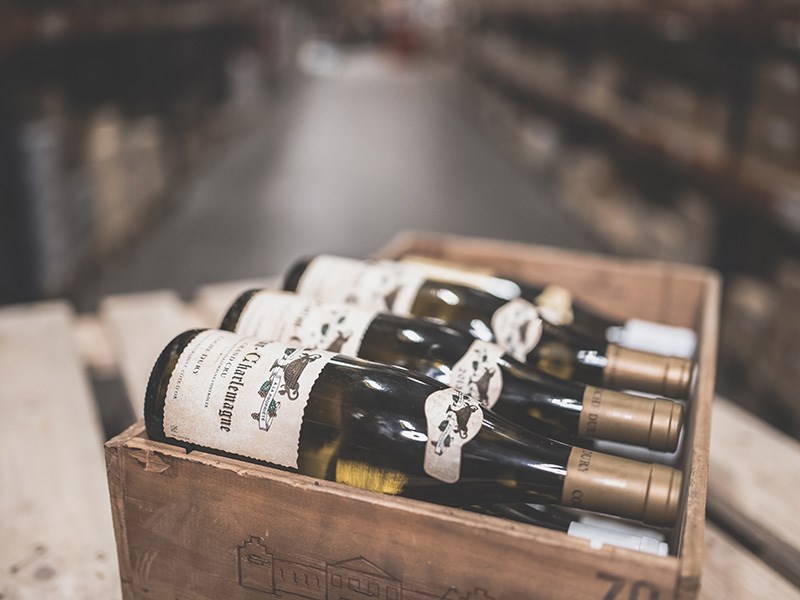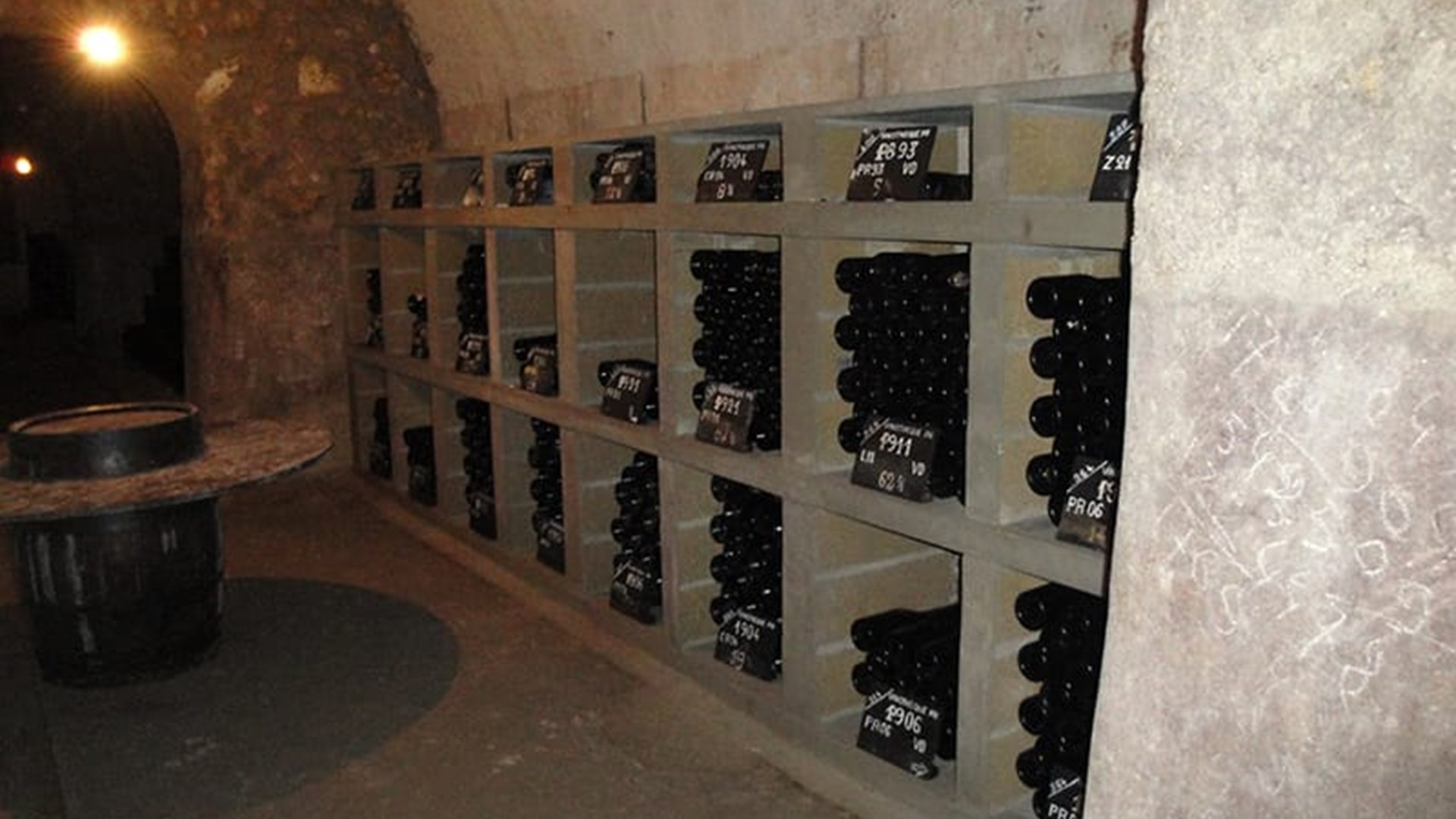Article - RareWine Academy
Storage Of Wine: The Ultimate Guide
The best wines get even better if they are stored properly - and so does their potential sales value. Read on for a complete guide on how to store wine properly.
Most wines are bought and drunk within a very short time. How these wines are stored is therefore of little importance. It only becomes meaningful when it concerns wines at the expensive end of the scale, which only improve if they are given time to mature. How should these be treated?
This article explores the many facets of wine storage to help you understand how to treat these precious drops.
Storage Of Wine
There may be several reasons why one wishes to store wine for a shorter or longer period. The two main reasons for storing wine will either be to drink it later or to sell it for financial gain to others who wish to drink it. Certain aspects should be considered, whatever the purpose, so that the wine does not lose its economic and taste value.
Wine is a living organism, which must be respected if it is to be tasted and enjoyed at the optimum time. The wine consists mainly of water, about 14 % alcohol, and 1-2 % dry parts. The balance between these elements is crucial to the development of the wine. To have the optimal taste value for wine, it must develop under optimal conditions.
How To Ensure The Economic Value Of Wine
Optimal conditions are not only beneficial for the taste of the wine. They are also essential for the wine to maintain its economic value. When buying and selling precious wine, the wine must be kept in optimal conditions. A potential buyer will often ask for proof of this.
It would be a dream scenario if all the original bottles were sold directly from the château's cellar, as was the case with the last wines from Henri Jayer's cellar. However, this unique opportunity is far away from frequent, especially when it concerns older wines.
The other option is to have the wine stored in your own or external wine cellar, where the wine is kept at the correct temperatures and conditions. It would also be optimal if temperature and humidity could be documented. This will give the optimal wine value, and on the day the wine is to be sold, it will be a security for the buyer.

Not All Wines Have Storage Potential
Not all wines with a vintage on the label are suitable for storing both taste-wise and economically. It is a surprisingly small part of the overall wine market that possesses the elements needed for this development.
Before a wine's taste can develop positively, it must contain some aspects from birth. It is often said that the wine must have a lot of tannin, acid, sugar, or alcohol. These are essential and sound elements to have. Still, it also requires that the wine has the right balance so that the details develop correctly in relation to each other.
Historically, certain areas produce wines with good potential to evolve, but this is not to say that all wines from that area can evolve positively. In Bordeaux, for example, the best wines can develop positively in terms of taste for more than 100 years. In contrast, the more ordinary wines taste excellent when they reach the market but are not suitable for being stored for several decades.

The Number Of Wines That Can Develop
Every year, around 260 million hectoliters of wine are produced worldwide. Of these, about 1 % will improve the taste by being stored for more than ten years from the vintage year. And this is only if they are stored at optimal conditions. Of these, only a fraction will increase significantly in value. The other wines on the market are adapted to a consumer market where the wine must be ready to drink when it is put up for sale.
It takes a great deal of knowledge of the wine market to discern which wines can be kept for personal enjoyment or stored for financial gain.
The Optimal Conditions For Wine Storage
As mentioned above, the most optimal environment for wine storage would be in a castle cellar. Of course, few people have a castle with a cellar, so let us look at some alternative wine storage options.
Five points are essential in the search for the best conditions for wine storage, and below each of them is unfolded:
- Temperature
- Humidity
- Light
- Shaking
- Safety
Temperature
The correct temperature is the most crucial factor when discussing wine storage. First, the temperature must be stable. The lower it is, the slower the development of the wine will be. The optimal temperature is between 12 and 14 degrees. Here the wine will develop as the winemaker wishes. A cold cellar at 4 - 6 degrees will keep the wine young for longer. If your wine storage is 20 degrees, the development will happen significantly faster than the textbooks say.
Humidity
Humidity is significant in the case of wines with corks. With a cork, it is important to ensure that the cork does not dries out from the outside when the bottle is lying down and the wine keeps it moist from the inside. If the cork dries out, oxygen can, unfortunately, get into the wine. In the worst case, the bottle will leak, and the wine will oxidize. It is recommended to have 70 - 80 % humidity when storing wine. At higher humidity, labels can be damaged, but this will only be cosmetic, after all. If the wine is stored with the purpose of selling, it can cost many thousands of dollars if the label is damaged.
Light
There is a reason why wine is often stored in a cellar where light has difficulty entering. Light damages wine by breaking down enzymes and color pigments. If you must have light in your wine room, it should be without damaging UV rays that degrade the wine. It is recommended to keep the wine in closed boxes or turn off the room's lights.
Shaking
Wine needs peace to develop optimally. That is why you should try to avoid vibrations in the surroundings of the wine. It is difficult to say exactly what effect vibrations have on the development of wine. Still, wine is alive, and vibrations can cause a wine to develop faster than desired. That is why most people keep the wine in a wine refrigerator with the compressor dimmed so that the wine is not shaken. Storage in a building near a busy road or heavy traffic is certainly not recommended.
Security
When it comes to expensive wines, safety is essential. Suppose you wish to store large quantities of wine in your own house. In that case, it is highly recommended to talk to your insurance company to ensure optimal insurance of the wines. Also, wine can be stored in an external warehouse designed for wine storage. Again, it is advisable to check the level of cover provided by the storage facility in the event of damage or theft of the wine.
Optimal Wine Storage Is Possible
Fortunately, it does not require a castle to provide suitable conditions for wine. Your wine is in good hands if the above five points are considered.
Find a place with a stable temperature. For instance, in your own house, this could be at the bottom of your wardrobe, in the cellar, or a north-facing room with minimal sun. Put the wine in closed boxes and leave it alone. Be aware of large temperature fluctuations in the short term - this is not optimal for the wine. It is okay if the temperature varies by five degrees from summer to winter. More significant temperature fluctuations can be critical.
The better conditions a wine is kept in; the slower and better the evolution will be. A changing temperature can ruin even the best wine in weeks. That is why most people also choose to invest in a wine refrigerator that provides constant temperature, ideal air pressure, minimal vibration, and protection from UV rays.
Great wine deserves the best environment for storage, maturation, consumption, and even investment.
